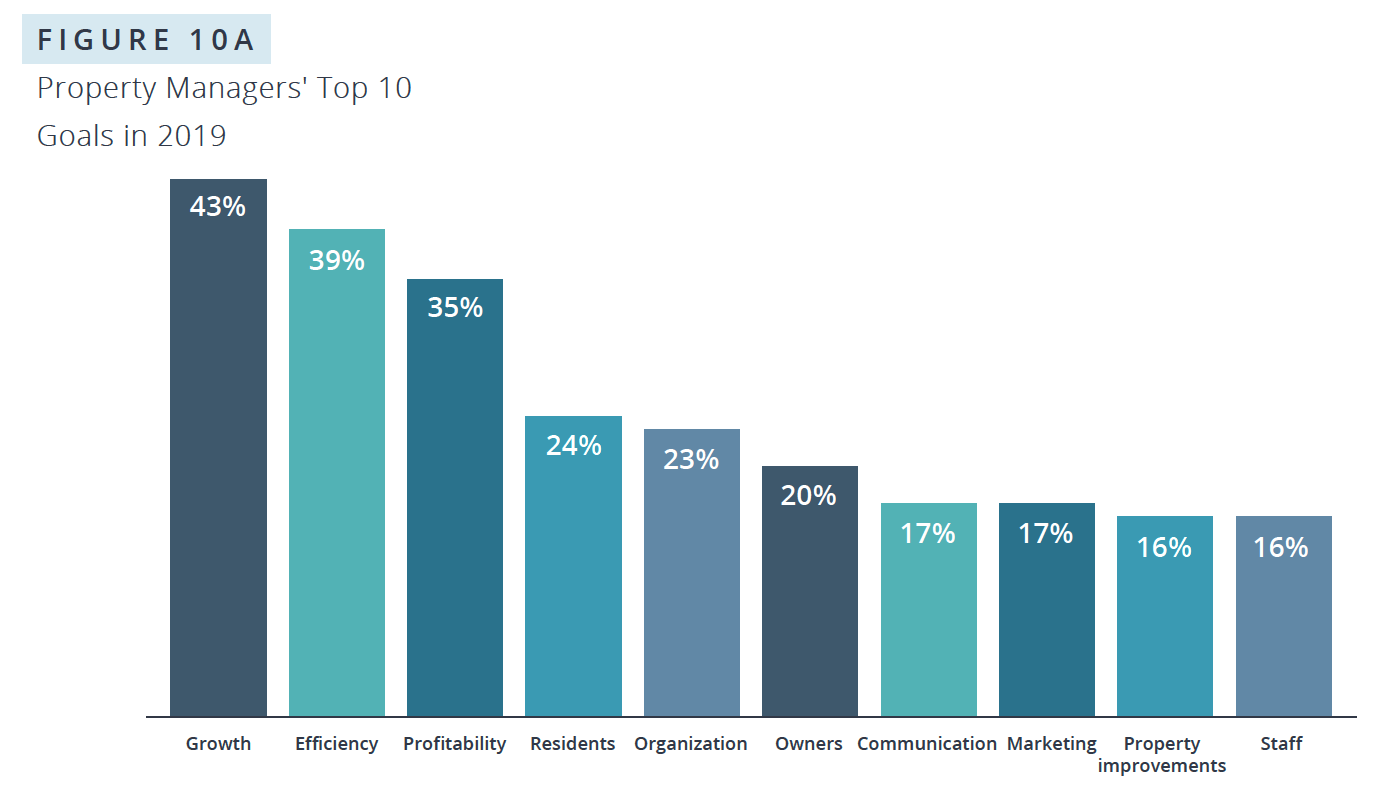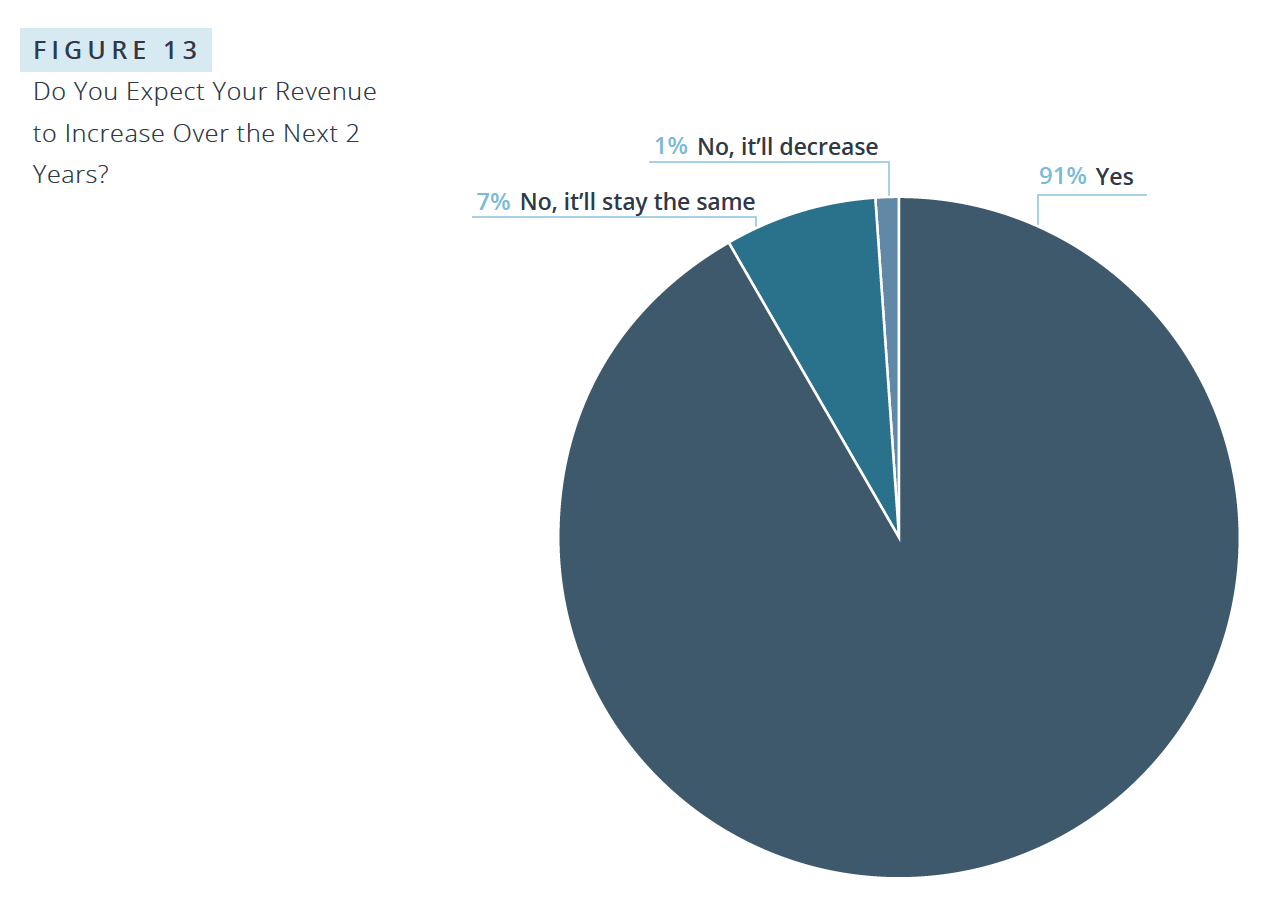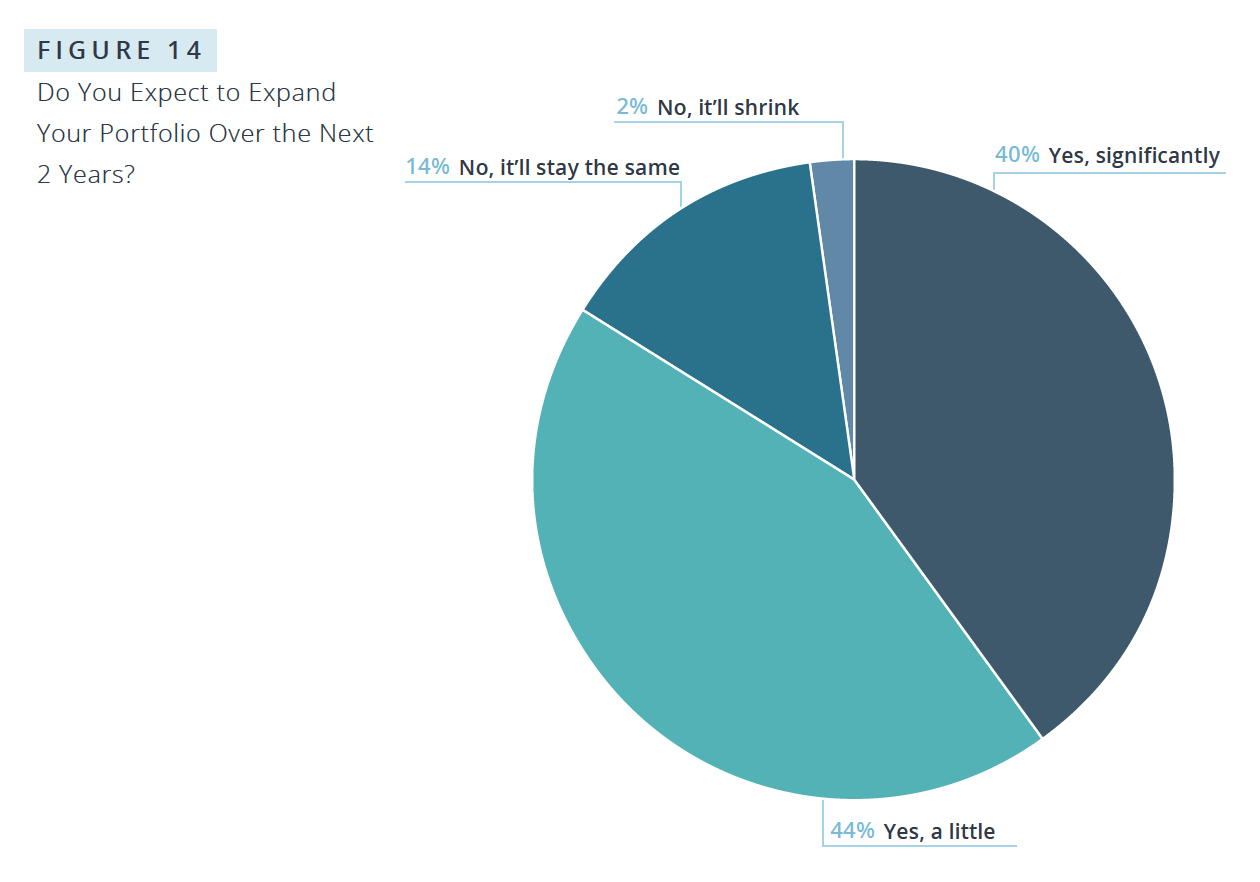If you’re in the property management industry, you already know things are changing, and fast—but what does it all mean for the future success of your business? Today, property managers of all kinds are facing new challenges: rental demand is higher than ever, yet many are facing rising vacancies and stagnant rents. Meanwhile, home values are reaching their peak, motivating many rental owners to sell their properties, causing some property managers’ portfolios to shrink. What’s the best path forward?
Chart of Accounts
Want clearer, cleaner books? What about a more useful view into your properties or just easier accounting in general?
Get the GuideThis year’s State of the Property Management Industry Report sheds new light on how all property managers can thrive in an increasingly demanding climate. The 2018 survey is our most comprehensive yet—in collaboration with the National Association of Residential Property Managers (NARPM®), we surveyed nearly 2,000 property managers across the U.S. to deeply understand their struggles, successes, and goals. The report also pulls from our intensive market research and survey data from renters and owners, providing property managers with a 360-view into the challenges and opportunities they’re likely to face in 2019 and beyond.
There are plenty of exciting insights to explore, but most of all, we learned just how important it is to bring relationships and the home experience back into focus. The future of property management is all about the human element, and we have data-driven strategies to help you get personal and take your business to new heights.
#1: Focus on the Customer Experience
In Respondents’ Words: “The number one improvement that I have made within the company is building a relationship with the residents. I strongly believe that the property needs to feel like a home and a safe community, rather than just 4 walls and a payment due on the first of every month.”
As the industry evolves, your strategies for success should, too. Going into 2019 and beyond, property managers like you are prioritizing portfolio growth and increasing revenue—and they’re counting on strong client and resident relationships to get them there. More specifically, we found that property manager’s top goals in 2018 were Growth, Efficiency and Profitability. This year’s industry report further uncovered a renewed investment in building excellent relationships with residents, owners, and staff. Think of it this way: you can’t grow without retaining clients and attracting new clients, and you can’t be profitable if you fail to convince residents to sign and renew their leases.

That means it’s more important than ever to personalize your offerings to meet the diverse needs of different demographics of renters. You’re managing more than properties—you’re building relationships that will serve you for years to come. Here are a few strategies to get started:
Be attentive to renters’ needs. Although renters’ needs and preferences vary by generation, attentiveness is universally appreciated. Make it a priority to regularly solicit renters’ feedback and find out what they need (and want!). Ask families how you can make their home more child-friendly, or offer to create a community space for residents to gather. Helping make their rental feel like a home is key to retaining a great resident.
Know which concessions to make. When a resident is thinking about moving, it’s hard to know which concession might convince them to stay. But based on data from the 2018 Renters’ Report, we know these 3 incentives would win over a large portion of renters: free utilities for a year, a recurring deal on rent, and keeping rent at the same rate for another year. Strategically offering renters a concession they’ll like is a great way to show that you’re invested in keeping them around.
Understand your clients’ individual goals. It’s time to abandon the ‘one-size-fits-all’ approach to client relationships. An evolving client base means that no two rental owners are created equal. Some owners are eager to maximize profitability, while others are protecting the sentimentality of their homes. Determine which type of investor your clients are, and moving forward, select clients that are the ideal fit for your business model.
#2: Make Technology Personal
In Respondents’ Words: “Customer service is often the number one complaint in housing. Staying up-to-date with residents and active communication will result in higher retention and a better sense of community overall.”
Personalized customer service sounds great in theory—but if you’re worried about having the time and manpower to deliver it, you’re not alone. Property managers of all stripes reported struggling to keep up with the demands of customer service. That’s where technology comes in. As your company grows, technology plays a vital role in streamlining tedious tasks to help you scale as your portfolio expands. Even better, embrace tech-enabled customer service as a new way to meet your owners’ changing needs, without all the labor of strictly analog customer service.

Today, fostering strong relationships in-person and online is critical to your success. Use digital tools like email and online portals to automate processes such as rent payments and maintenance requests. You can also use technology to foster a sense of community and keep in touch more often. Use a resident portal, email or messaging to solicit renters’ feedback, and follow-up in person to see it through. Tech-enabled customer service helps property managers enhance their communication and foster stronger relationships to grow their business.
#3: Attract and Retain High-Quality Staff
In Respondents’ Words: “It is hard for staff not to take tenant frustrations personally, and they often burn out and leave the team. This leaves us to train again, which takes valuable time away from focusing on portfolio growth.”
Sound familiar? With 1 in 4 respondents identifying Vendors and Staff as their top challenges over the last year, we’re guessing you’ve grappled with this problem at some point. There are many contributing factors exacerbating employee turnover: the vendor shortage is taking a toll on overworked staff, and there’s steep competition for qualified new workers entering the property management field.
Although finding great staff members isn’t likely to get easier in 2019, there are a few strategic steps you can take to attract, hire, and retain high-quality staff to help ease the burdens of high turnover.
In Respondents’ Words: “Hire the right people, and 80% of your problems will go away.”
Train and develop newbies. New workers aren’t entering the field of property management as quickly as older workers are approaching retirement, and it’s creating a painful staffing shortage. Combat the problem by recruiting promising candidates who possess the characteristics of a successful employee and train them on the skills of the position. Use culture tools like writing a company vision to attract the right people who will stick with you long-term.
Invest in your staff. Happy, engaged employees will deliver better results for your business every time. Employee engagement begins with offering a competitive package, but today’s employee is also looking for growth opportunities and work-life balance. Just like you solicit resident feedback, stay in touch with your employees about where they’re at and where they want to be.
#4: Maintain Growth in the Face of Market Changes
In Respondents’ Words: “A significant number of owners that came into the market by default during the real estate crash are now selling. Owners have paid down their mortgages and have seen their properties appreciate in price and have opted out of the rental market. It’s created an overall shortage for rental housing.”


Experiencing a slowdown in portfolio growth? We’ve seen portfolio growth climb the list of property managers’ biggest challenges over the last several years, and it’s keeping many of them from meeting their growth goals. The quick diagnosis? A strong seller’s market gives Accidental Landlords an incentive to sell their homes instead of renting them out. But in other places, stagnating rents and rising vacancy rates top the list of concerns. No matter which camp you’re in, your owners will look to you for how to manage their rentals effectively and profitably.
If you’re facing portfolio loss, stay ahead of the game by proving your value to investor clients. The idea is to attract and retain high-quality renters, while maximizing profits and minimizing the cost of any updates to their units. Although it sounds like a tall order, the strategies we’ve outlined so far equate to this outcome. By focusing on the human element of your business, you’re naturally attracting quality residents and vendors who will help maximize the return for your clients.

While every market is different, the most compelling revelation is that property managers really have one task: prioritize the human element of your business and everything else begins to fall into place. The key is to provide empathy-driven, tech-enabled service to all of the people who impact your business—your residents, your property owners, and your staff.
The property management industry is changing—but property managers are evolving, too. Learn the tools and strategies you need to know with our free, downloadable copy of the 2018 State of the Property Management Industry Report.
Read more on Industry Research

